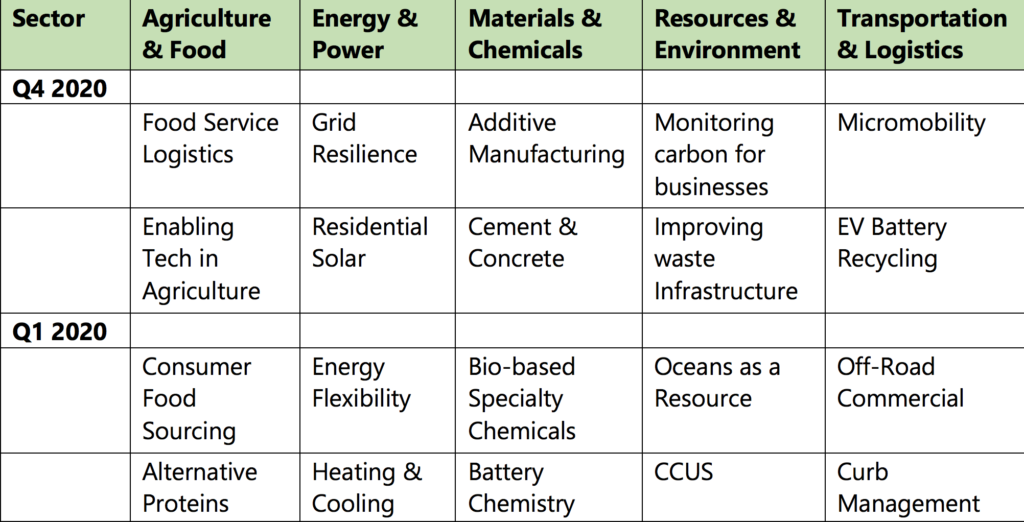Cleantech Research Agenda Update – Q4 2020
Cleantech Group’s research agenda focuses on growth opportunities powered by innovation. From trends and companies to the people and ideas defining the future of industry, we are tracking and engaging with thousands of start-up companies who are shaping a more digitized, de-carbonized and resource-efficient future.
Our analyst team delivers insights on sectors and investment trends allowing our clients to evaluate market attractiveness, business models and competitiveness. We conduct hundreds of research interviews every year across our ecosystem of entrepreneurs, investors, corporations and governments in order to develop a deep expertise in technology and innovation trends.
Here are some highlights from the great stuff we’ve recently published:
- Intelligent Fleet Management: Until now, mobility and delivery fleets have met growing demand by simply growing the number of vehicles, drivers and couriers in their fleets. This has led to outsized, inefficient fleets with abysmal unit economics. In order to improve economics by using fewer vehicles more efficiently, fleet operators are turning to deep tech solutions, such as AI and spatial analytics to predict demand, use real-time dynamic routing based on current and projected traffic conditions and optimize vehicle placement.
Fleet Management Landscape
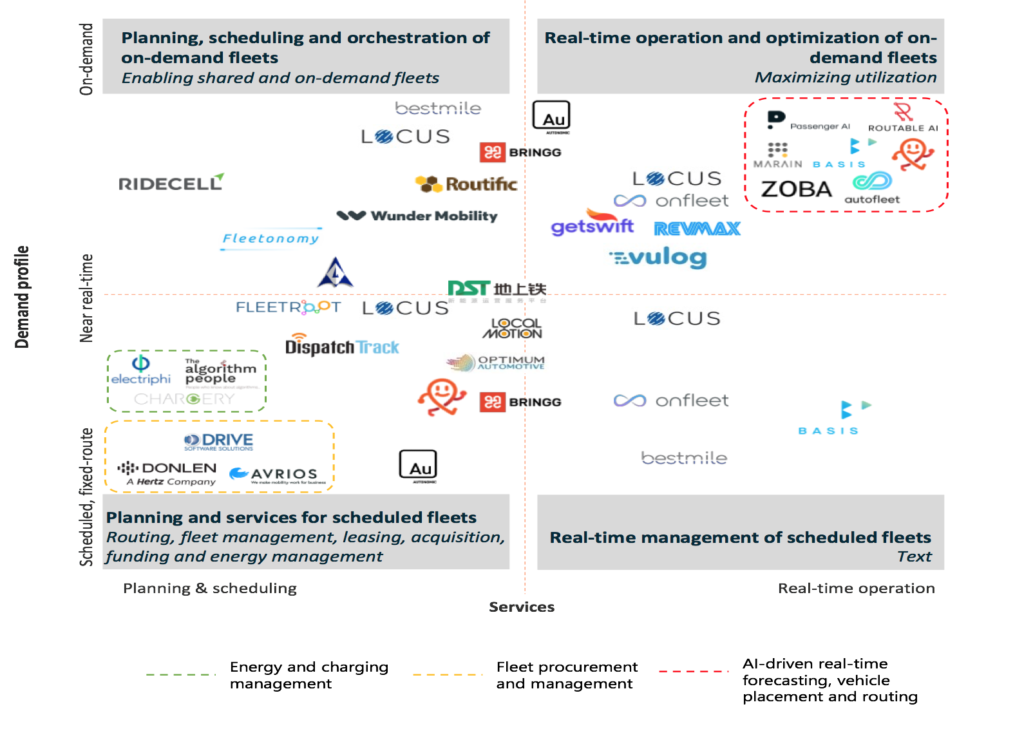
- Digital Grid Resilience – Natural Event Mitigation and Reliability: Resilience is becoming a vital component of grid operation, as a convergence of influencing factors increases power outage risk and causes further system strain. This sector insight explores what new strategies are taking shape for grid operators, and highlights 3 areas of grid innovation:
- Grid sensors
- Grid analytics
- Digital grid control
Investment Snapshot: Past 18 Months
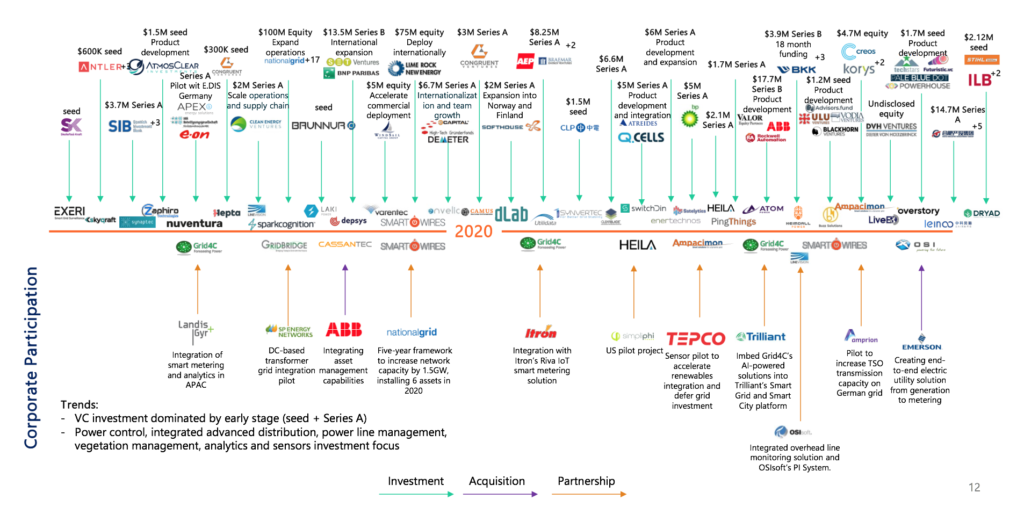
- Q3 Quarterly Investment Monitor: Investment activity in 3Q20 felt the adverse effects of COVID-19, with a sharp decline of 23.6% in deal volume and 23.5% in deal amount. All 5 sectors felt the effects of COVID-19. North America retained the bulk share of deal volume at 49%, with Europe & Israel at 38% and Asia Pacific at 10%. Our updated analysis includes detailed quarterly global venture investment trends, geographic breakdown in addition to investment stage breakdown.
Investment Deal Amount and Volume
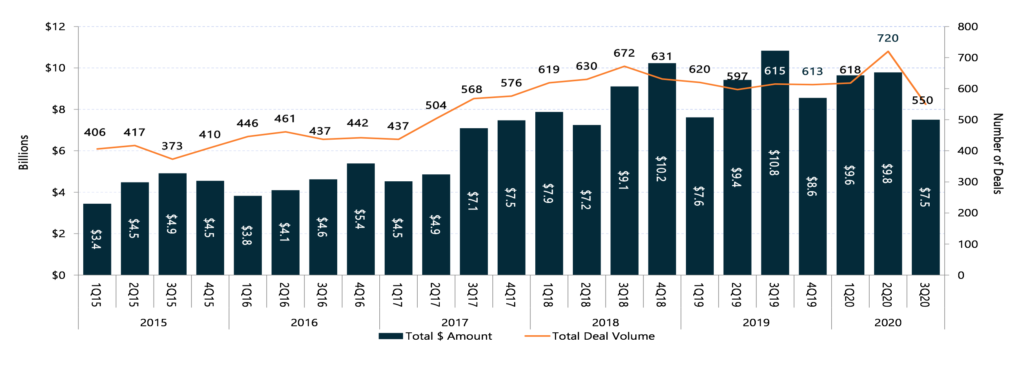
In Q4 2020, we are working on these great topics:
 Agriculture & Food
Agriculture & Food
- Enabling Technologies in Agriculture – This edition of CTG Sector Insights will analyze which enabling technologies are having the greatest impact on the agriculture and food system. From blockchain enabling supply chain transparency, to the use of AI in bio-products discovery, to robotics in indoor farming, this analysis will identify the enabling technologies having the widest impact across the agriculture and food value chain.
 Energy & Power
Energy & Power
- Residential Solar – Globally, residential solar is recognized as a mature market. In the case of grid-tied systems, this is largely true. While for the past two decades thousands of entrepreneurs have dived into this space hoping to come out as a market leader, few have accomplished this task, and many have fallen. Today, there are tens of thousands ofresidential solar providers globally. This insight will highlight the current trends pushing a more data-enabled, streamlined value chain, driven by market specialization.
 Materials & Chemicals
Materials & Chemicals
- Concrete & Cement – Cement it is a key ingredient in concrete – a critical material in the construction sector. However, the cement sector is the world’s third largest industrial energy consumer and the second largest industrial emitter of carbon dioxide. Despite the challenge associated with a low cost and high emission product, corporates continue to make commitments to reduce their impact. In this insight, we’ll take a look at the alternative solutions which will be implemented in the coming years, from carbon capture to alternative materials.
 Resources & Environment
Resources & Environment
- Innovation in waste Infrastructure – Traditionally wastewater is sent to centralized locations for treatment, but this is costly, inefficient, and often energy intensive. After long periods of R&D, innovators have created efficient decentralized treatment systems for commercial and industrial players to treat and recycle water, on-site. This insight explores solutions being developed for the food and beverage industry, fertilizer run-off preventing technologies in the agricultural sector and nature-based solutions for cities.
 Transportation & Logistics
Transportation & Logistics
- Micromobility – Sixty percent of passenger trips in the U.S. are five miles or less. Smaller form factors, such as scooters and electric bikes, can replace cars in these trips to reduce congestion, emissions and more efficiently use road space. Micromobility has the potential to help cities develop more equitable and lower-emissions transport systems, but we will review the operational and economic challenges still need to be overcome to realize the true potential of this form of transportation.
Recently Published Research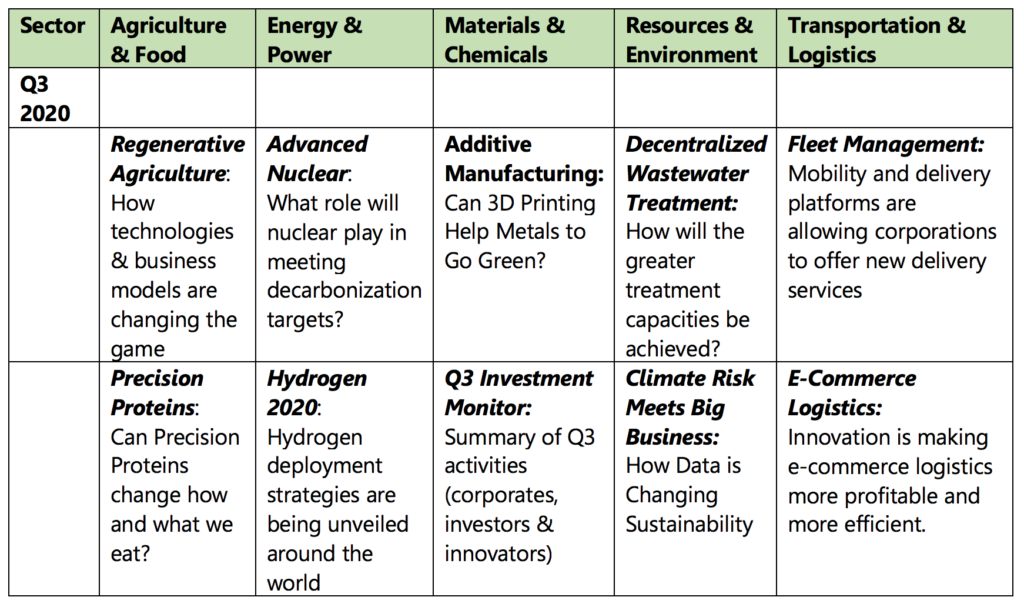
Upcoming Research
